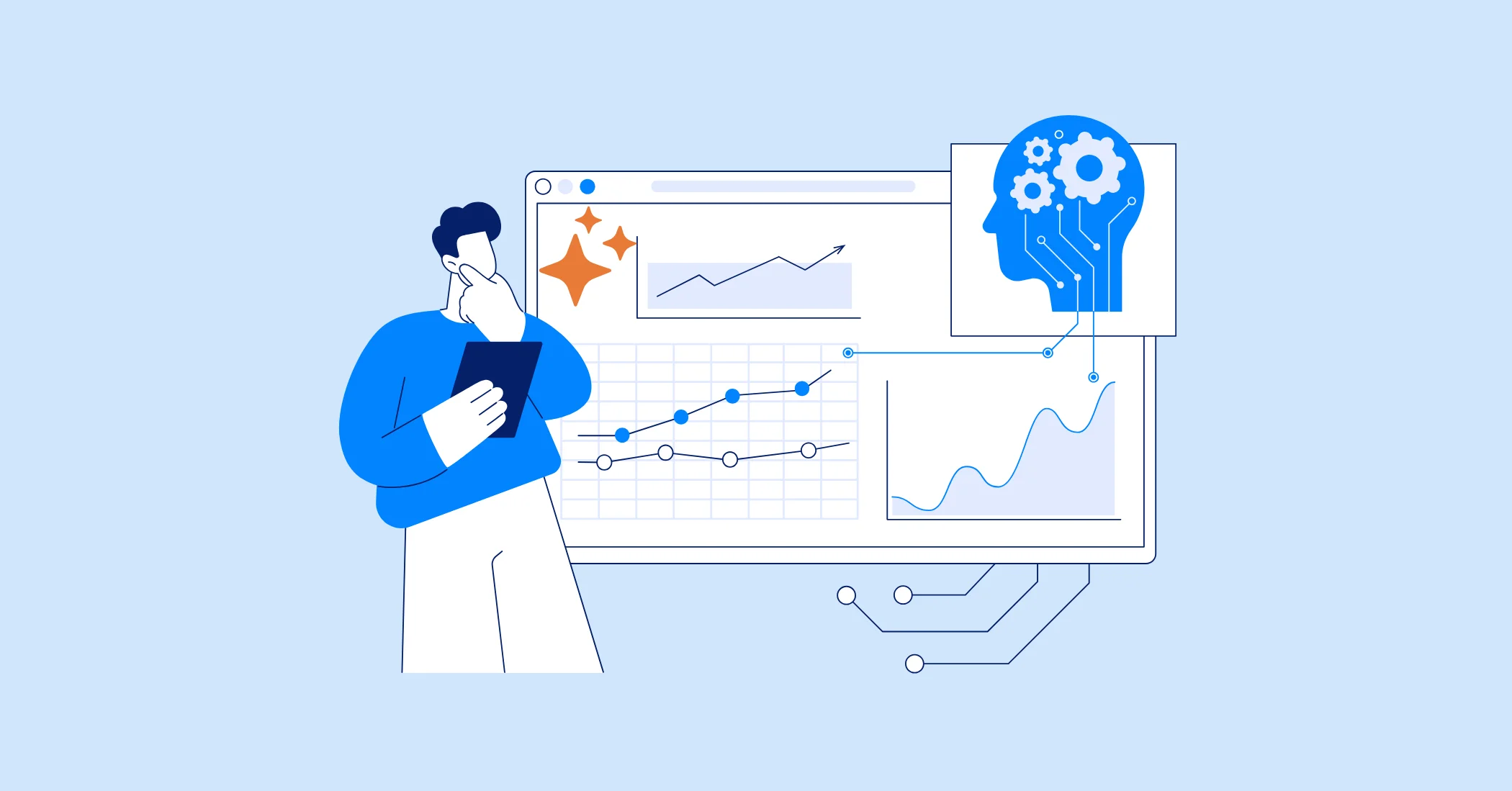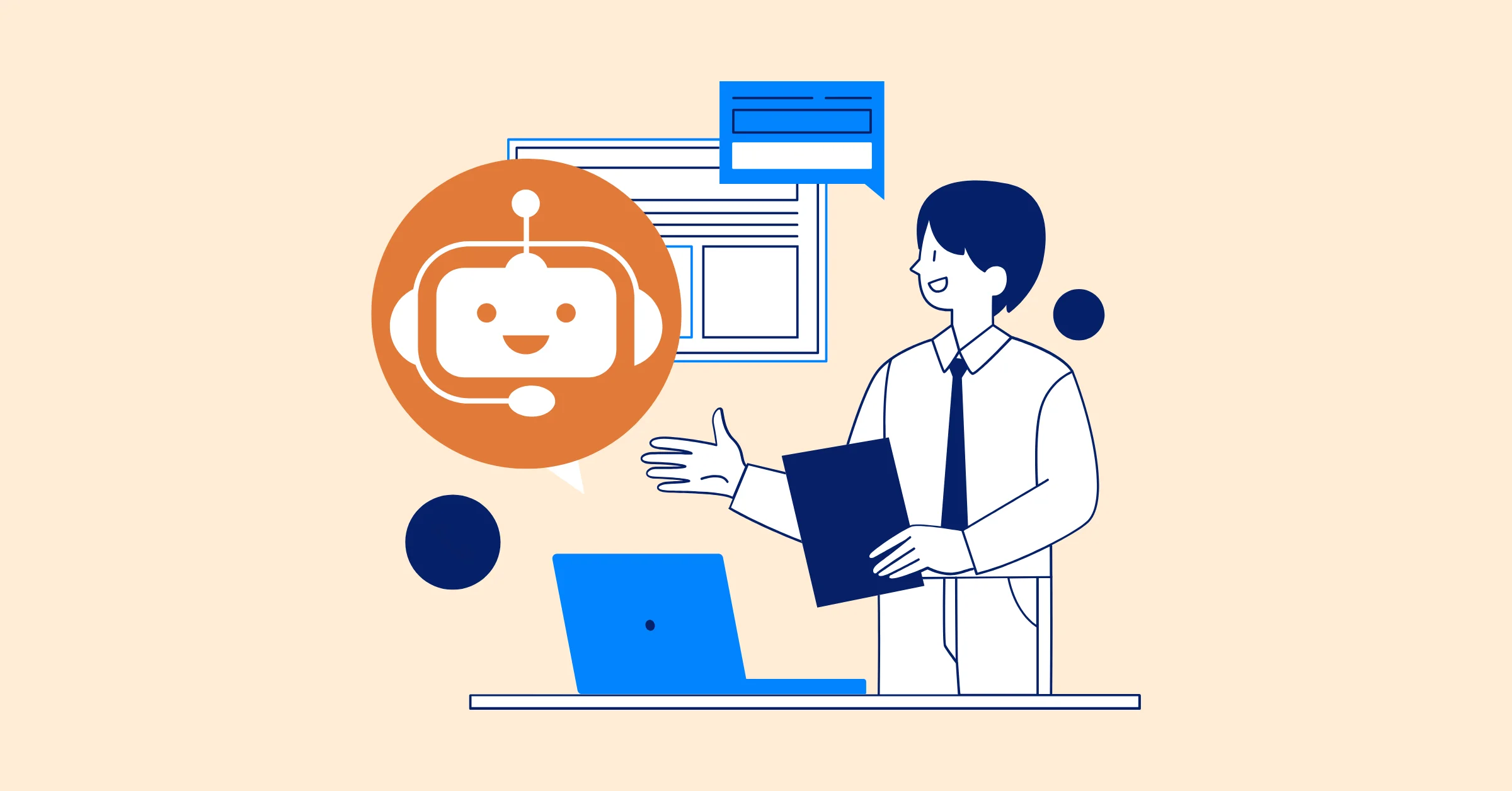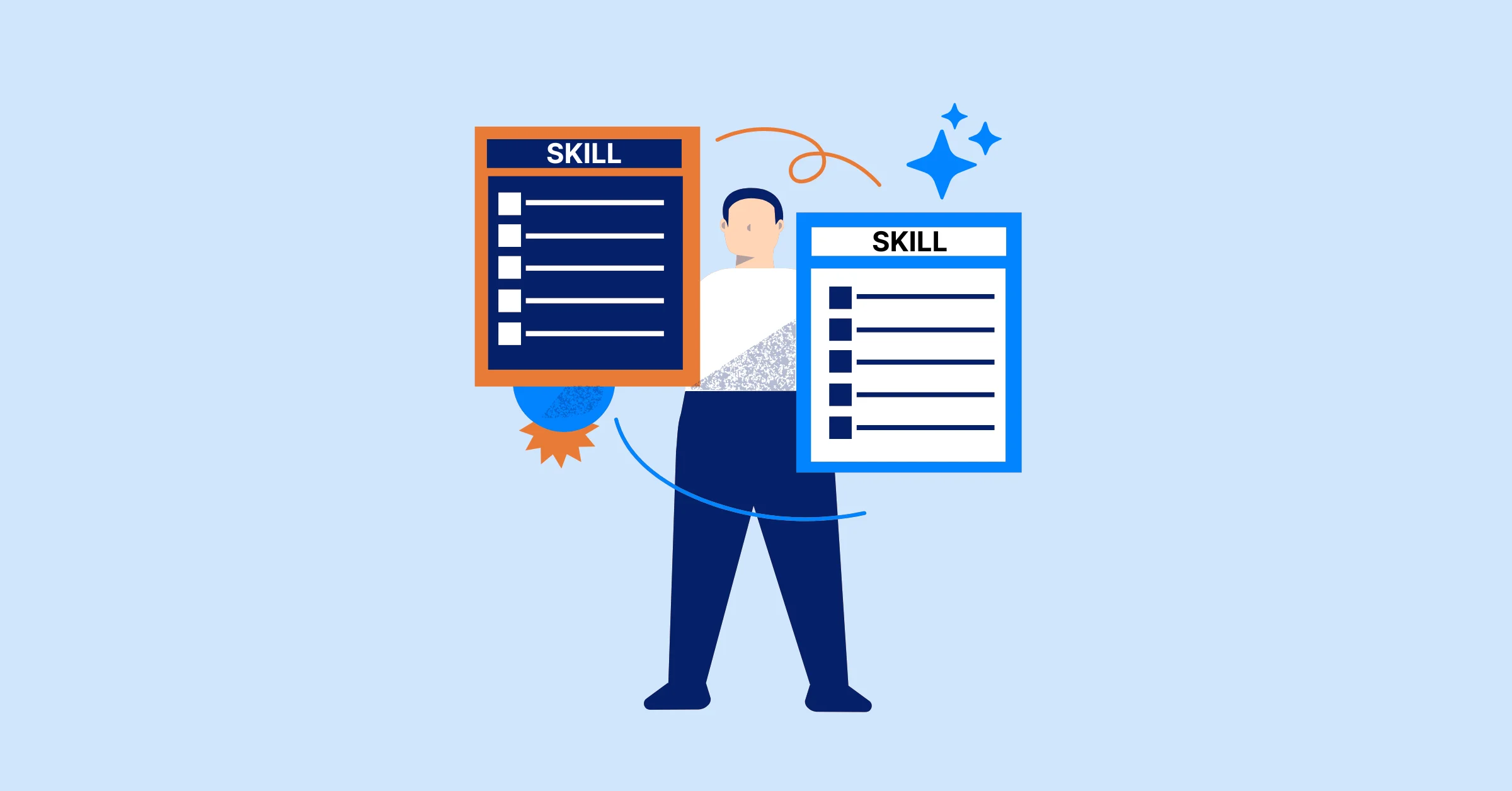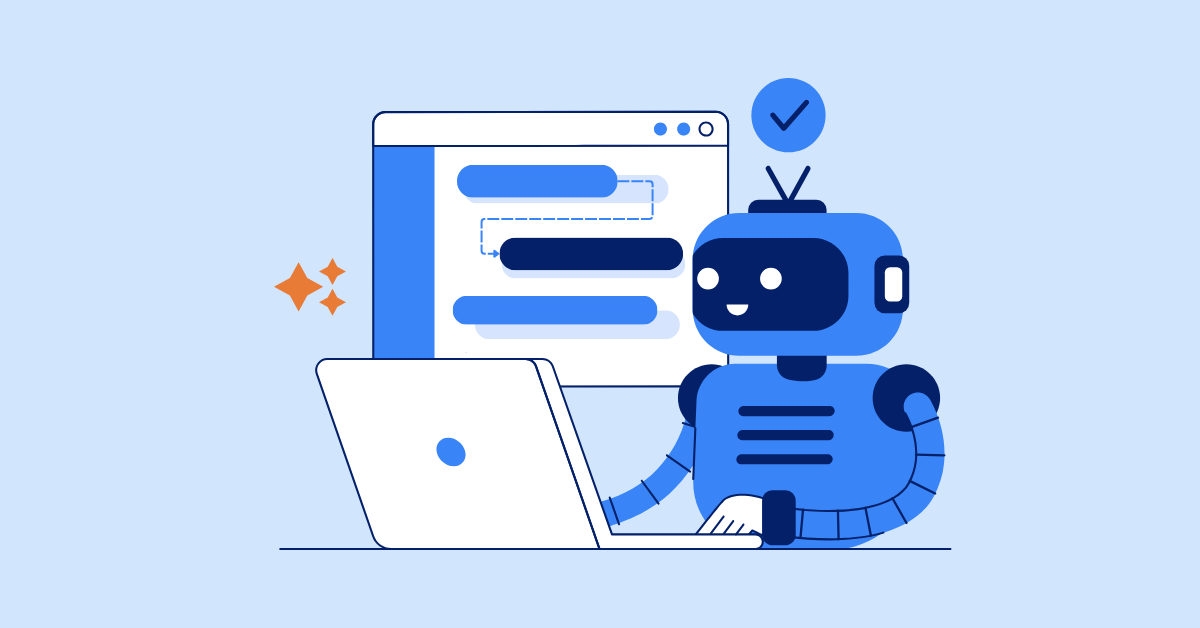5 AI Use Cases for Project Managers That Will Transform Your Workflow
Explore top AI use cases for project managers to automate tasks, manage risks, boost collaboration, and deliver smarter, faster results.
Project management today is more complex than ever. Between juggling multiple deadlines, coordinating remote teams, and keeping stakeholders aligned, project managers are expected to do it all — faster, smarter, and with fewer resources. That’s where artificial intelligence (AI) is stepping in to change the game.
AI isn’t just about automation anymore. It’s reshaping how projects are planned, tracked, and delivered, from predicting risks and generating reports to improving communication across teams. For project managers, adopting AI means more than just saving time — it means transforming workflows into intelligent, self-optimizing systems that keep projects on track and teams focused on what truly matters.
In this article, we’ll explore five powerful AI use cases that are already redefining how project managers work, and how you can start applying them today to streamline your processes, improve decision-making, and deliver more successful projects.
The Rise of AI in Project Management
Artificial intelligence is rapidly transforming how projects are managed, helping teams move from manual coordination to intelligent automation. As organizations handle larger workloads and tighter deadlines, traditional project management methods often struggle to keep pace. AI bridges this gap by analyzing data, predicting outcomes, and automating repetitive tasks that once consumed hours of effort.
Instead of relying solely on manual updates or static dashboards, project managers can now leverage AI to track progress, identify risks, and optimize resources in real time. Modern project management tools are already integrating AI features that turn complex data into clear, actionable insights.
The rise of AI in project management represents a shift from reactive coordination to proactive leadership. It empowers project managers to make faster, more informed decisions — turning raw data into meaningful actions that drive productivity, reduce risk, and keep every project on track.
How AI Tools Are Changing the Role of Project Managers
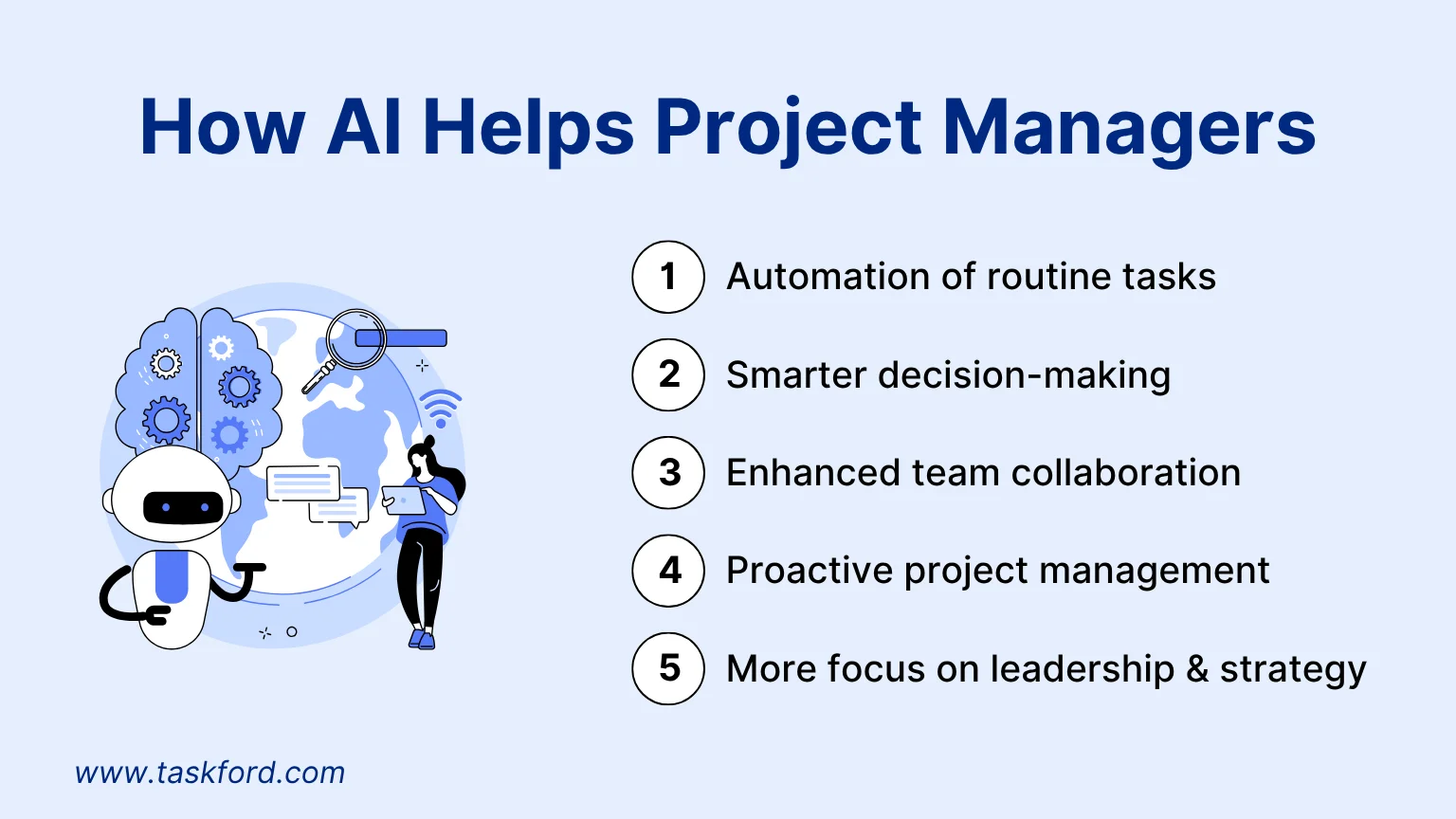
AI is transforming the traditional responsibilities of project managers, shifting their focus from administrative tasks to strategic leadership. Here’s how:
- Automation of routine tasks: AI handles scheduling, data entry, and reporting automatically — reducing time spent on manual updates.
- Smarter decision-making: AI tools analyze project data in real time, helping managers identify risks, forecast outcomes, and make data-driven decisions faster.
- Enhanced team collaboration: AI chatbots, automated reminders, and smart dashboards keep teams aligned and informed across time zones and departments.
- Proactive project management: Predictive analytics allow managers to spot bottlenecks or delays before they happen, improving project success rates.
- More focus on leadership and strategy: With automation taking over repetitive work, project managers can dedicate more time to guiding teams, communicating with stakeholders, and driving innovation
5 Common AI Use Cases for Project Managers
As AI in project management continues to evolve, project managers now have the opportunity to simplify workflows, predict challenges, and make faster, data-driven decisions. Below are five practical ways AI can transform how you manage projects every day.
Use Cases #1: Task Automation and Scheduling
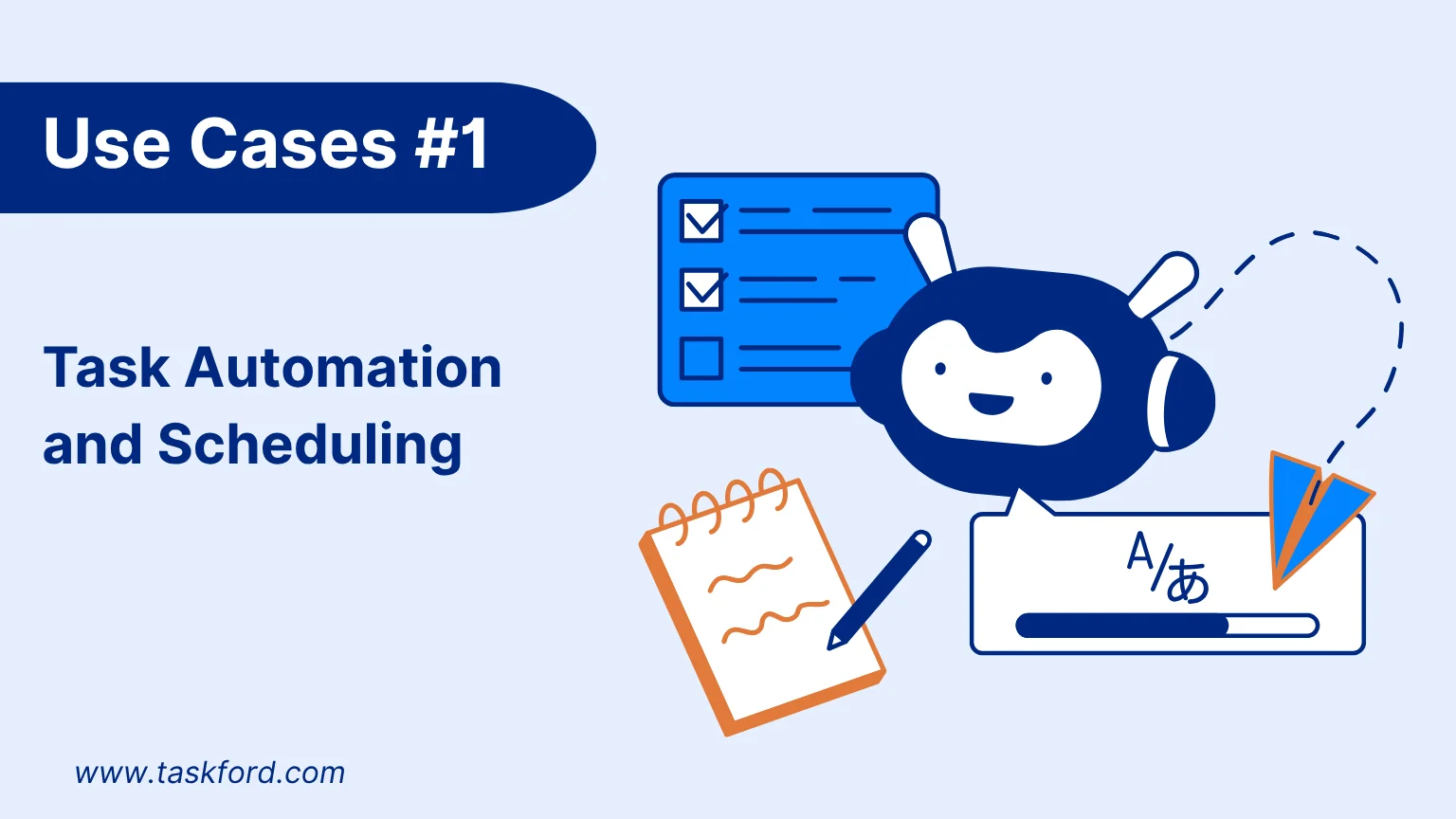
One of the most immediate and impactful ways AI supports project managers is through task automation and intelligent scheduling. Traditional task assignment often relies on manual coordination, deciding who should do what, when, and in what order. AI changes this by automating these processes based on team capacity, priorities, and dependencies.
AI-powered project management tools can automatically assign tasks to the right people, predict how long each task will take, and adjust schedules in real time as things change. For instance, if a team member falls behind or a dependency is delayed, the AI can reschedule related tasks instantly and alert relevant stakeholders.
This not only saves hours of manual work but also ensures that no task slips through the cracks. The result? More efficient workflows, optimized resource allocation, and fewer project delays, allow project managers to focus on strategy and leadership rather than administrative coordination.
Use Cases #2: Customer Feedback Management
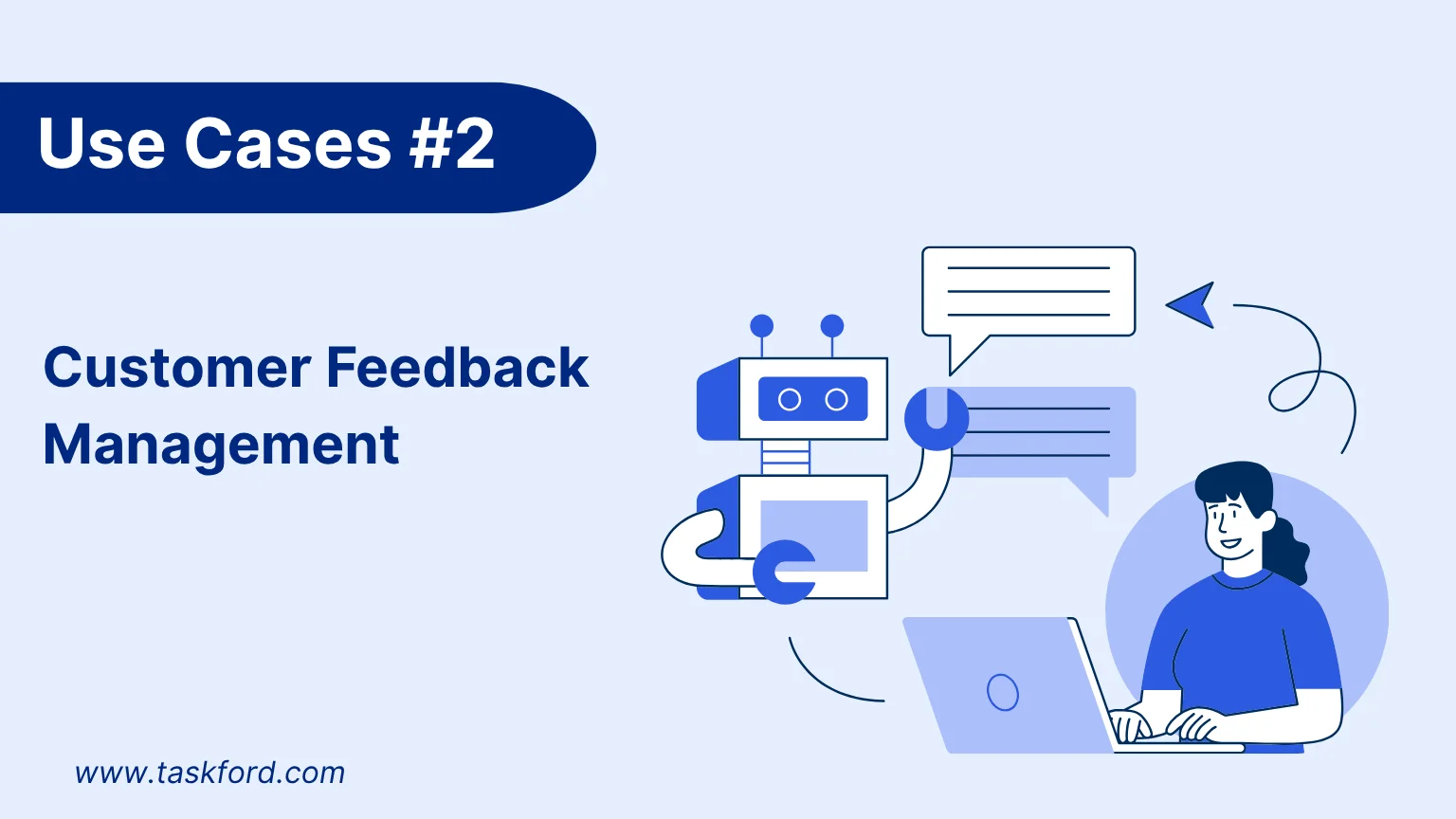
AI is revolutionizing how project managers gather, analyze, and act on customer feedback. In many projects, especially client-facing ones, understanding customer satisfaction is essential to maintaining quality and improving outcomes. However, sorting through surveys, reviews, and messages manually can be time-consuming.
AI-driven sentiment analysis tools can automatically scan and interpret large volumes of feedback, identifying common themes, emotions, and emerging issues. These insights help project managers respond quickly to client concerns, adjust project deliverables, and enhance the overall customer experience.
For example, AI tools can flag negative trends in feedback before they escalate or suggest actionable improvements based on patterns in client responses. By leveraging AI for customer feedback management, project managers gain data-driven insights that improve communication, client trust, and project quality.
Use Cases #3: Reporting and Performance Monitoring
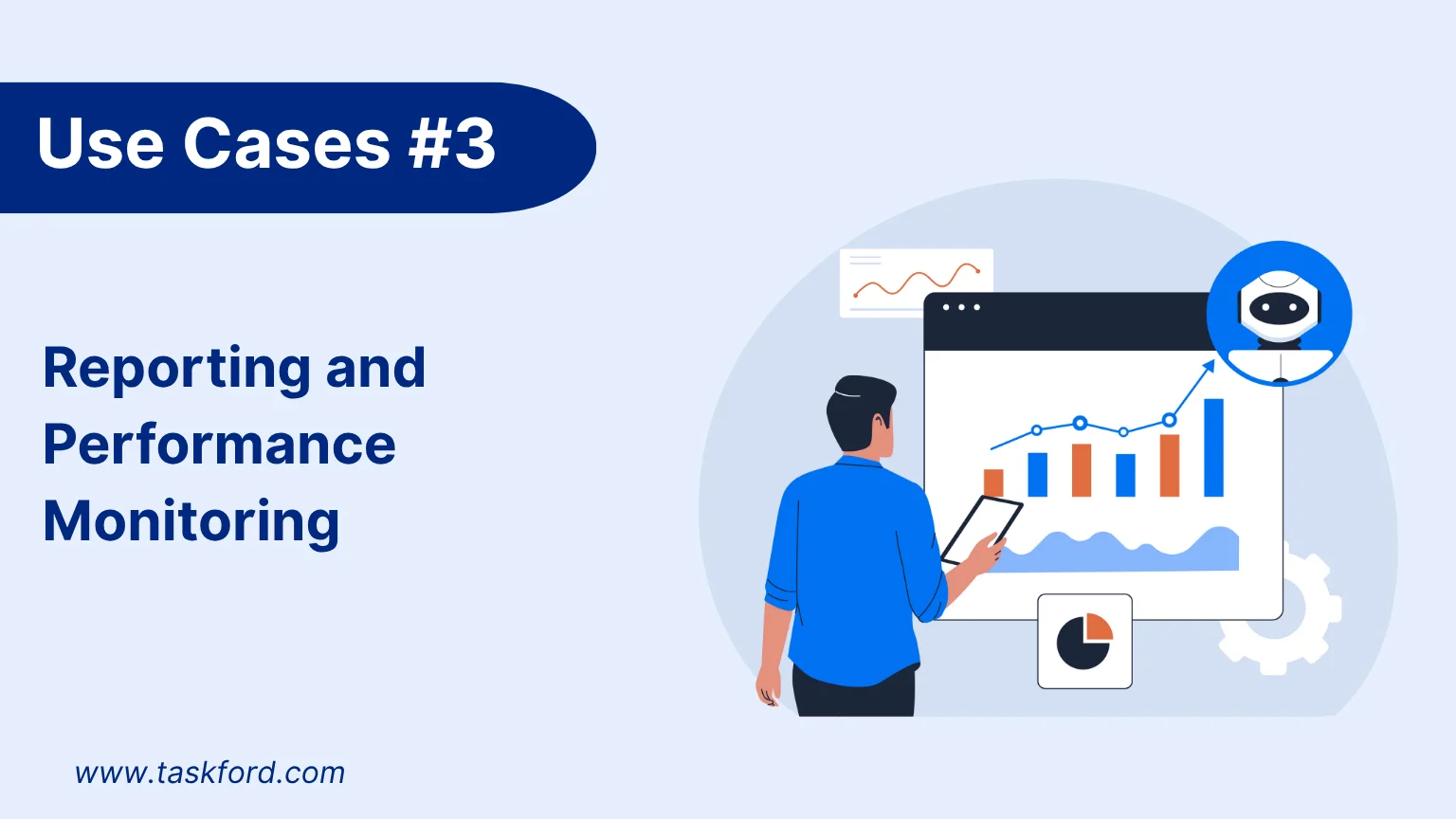
Creating accurate, insightful project reports has long been a time-intensive task. AI simplifies this with automated reporting and real-time performance monitoring. Instead of manually compiling data from multiple sources, AI tools can generate dynamic dashboards that visualize key metrics such as budget utilization, timeline progress, and resource allocation.
AI doesn’t just display data — it interprets it. By identifying trends, forecasting potential bottlenecks, and highlighting anomalies, AI-driven reporting helps project managers make more informed decisions faster.
Imagine a system that alerts you when a project’s budget is trending over, or when a key deliverable might miss its deadline before it happens. That’s the power of AI-based performance monitoring: proactive insights that enable project managers to stay ahead of problems rather than reacting after the fact.
Use Cases #4: Risk Management and Problem-Solving
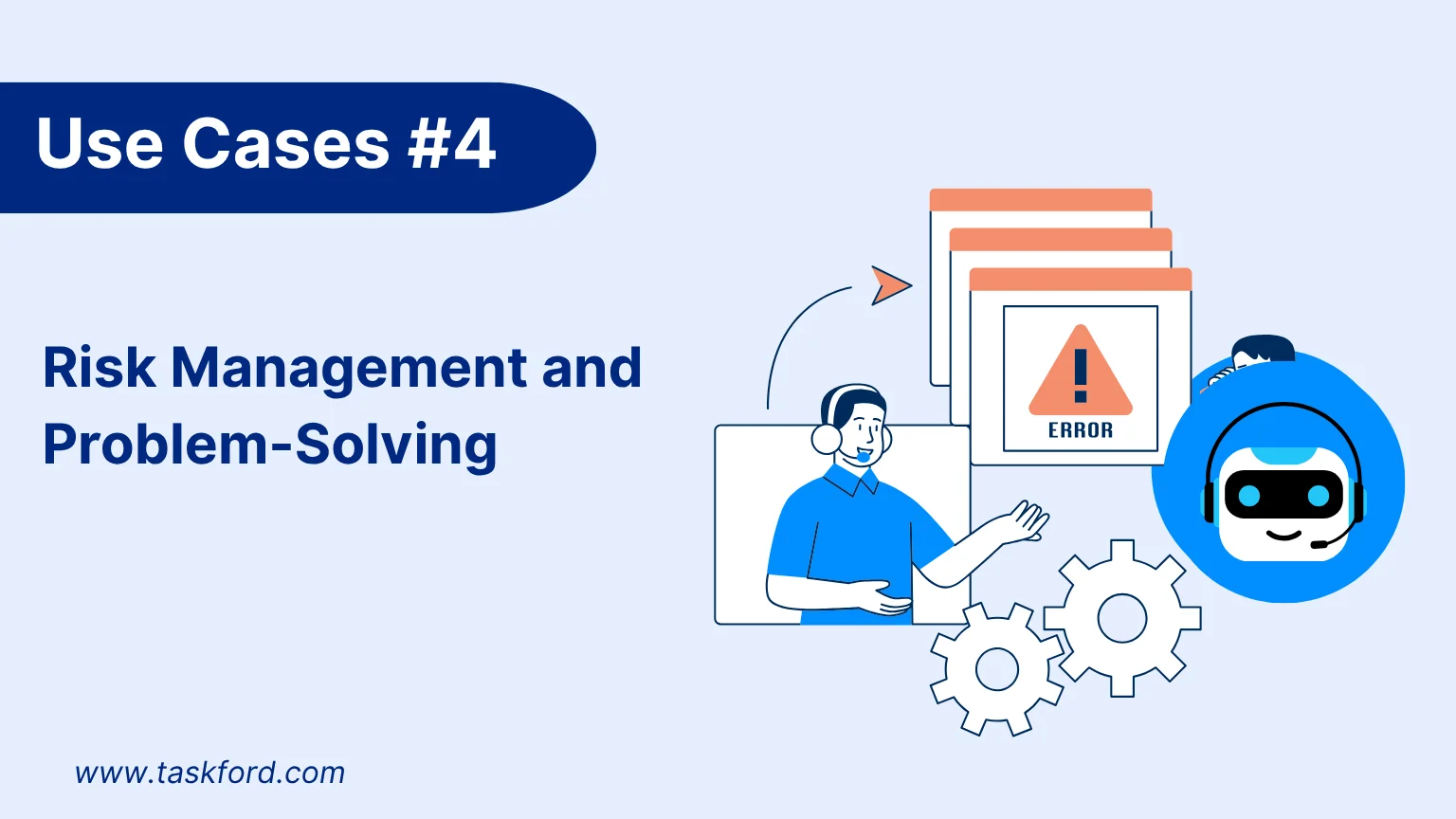
AI’s predictive capabilities make it a game-changer for risk management. By analyzing historical project data, resource performance, and external factors, AI can identify patterns that signal potential risks from Scope creep to resource shortages.
For instance, predictive analytics can flag tasks that are at high risk of delay or highlight dependencies likely to cause bottlenecks. AI can even suggest corrective actions, such as reallocating resources or adjusting timelines, before issues escalate.
Moreover, when problems do occur, AI can assist with root cause analysis, pinpointing where and why something went wrong. This turns risk management from a reactive process into a proactive, continuous one — enabling teams to mitigate challenges before they impact the final outcome.
Use Cases #5: Personalized Communication and Collaboration
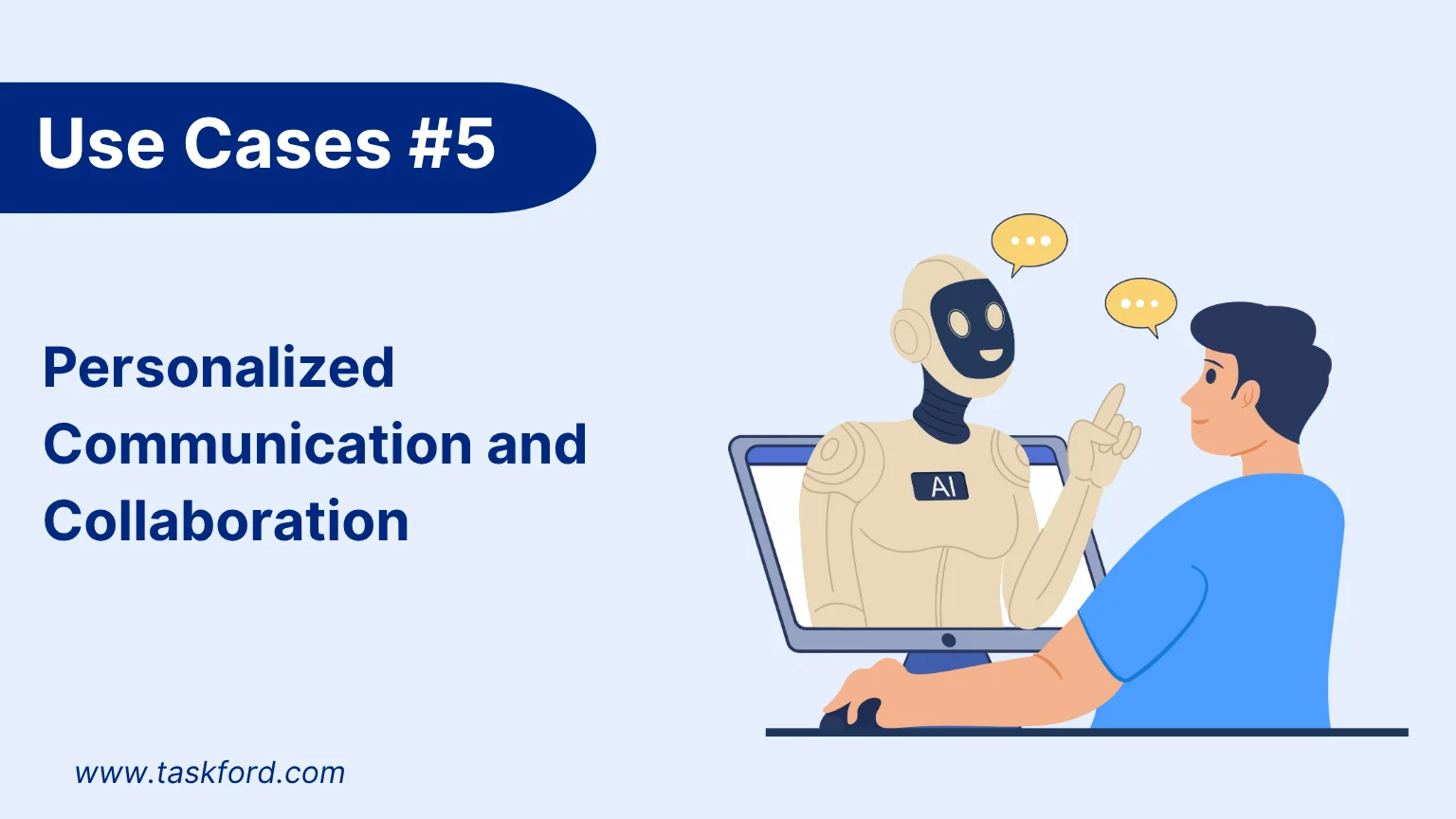
Effective communication is at the heart of successful project management. AI enhances collaboration by delivering personalized communication experiences tailored to each team member’s role, preferences, and workload.
For example, AI chatbots can summarize meetings, generate follow-up action items, and send reminders to relevant stakeholders. Natural language processing (NLP) tools can also analyze team interactions to detect communication gaps or potential conflicts, helping project managers intervene early to maintain alignment and morale.
AI can even recommend optimal times for meetings or send personalized updates to different stakeholder groups — ensuring everyone receives the right information at the right time. The result is smarter collaboration, fewer misunderstandings, and stronger team engagement across the board.
Conclusion
AI is no longer just a tool; it’s becoming a strategic partner for project managers. From automating repetitive tasks to predicting risks and enhancing collaboration, artificial intelligence is helping teams work smarter, not harder. By integrating AI into your project management workflow, you can transform data into decisions, challenges into opportunities, and projects into measurable success stories.
As AI continues to evolve, its role in project management will only expand, empowering leaders to focus more on innovation, strategy, and delivering real value. Whether you’re managing small internal projects or leading enterprise-scale initiatives, embracing AI today means preparing your team for the future of intelligent project execution.
Ready to take the next step? Start by exploring AI-powered project management tools that fit your workflow, and experience how automation, insights, and smart collaboration can elevate every stage of your projects.
Making work simpler,
smarter, and more connected
Join our waitlist and be notified first.

Related Blog
Subscribe for Expert Tips
Unlock expert insights and stay ahead with TaskFord. Sign up now to receive valuable tips, strategies, and updates directly in your inbox.

